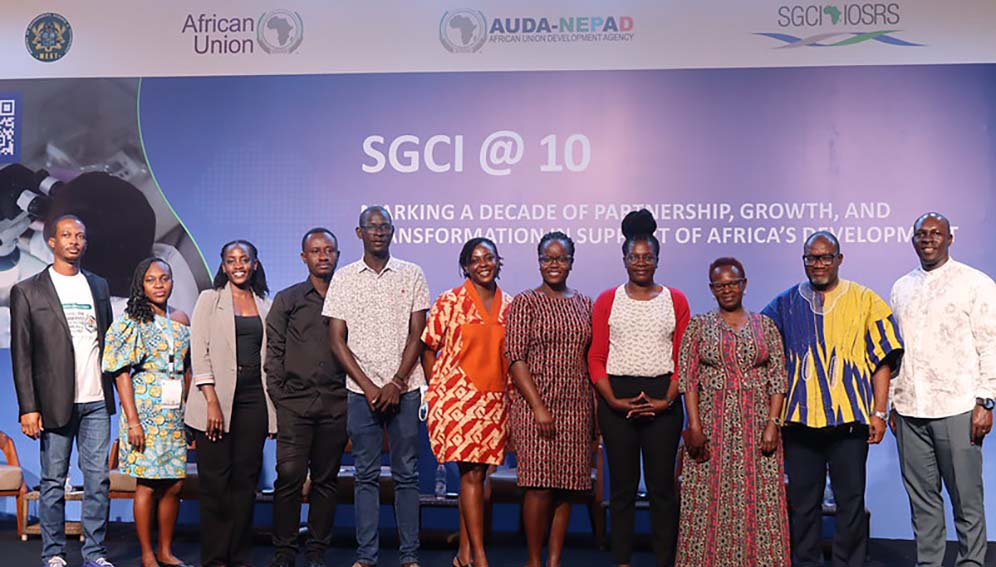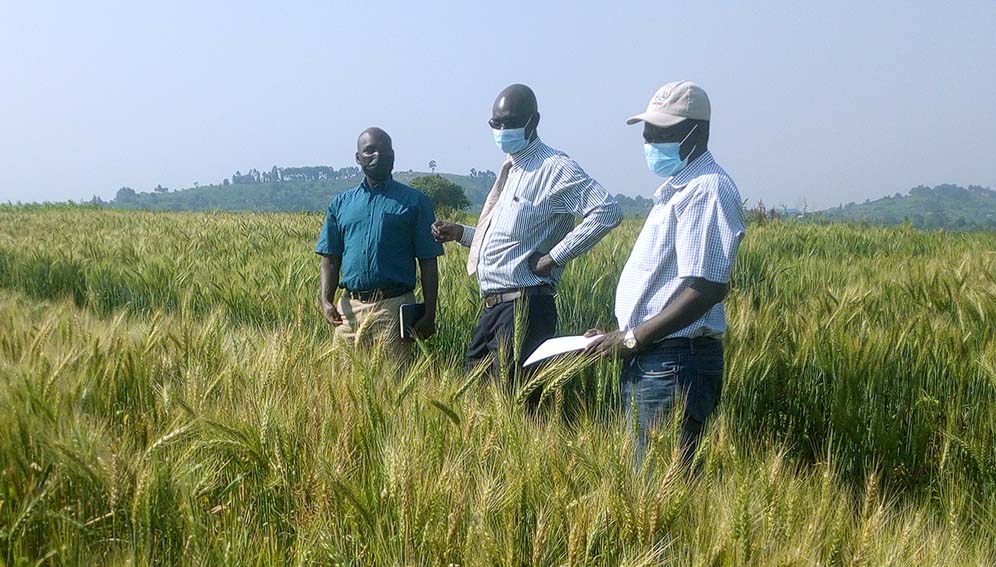SGCI News
The Uganda National Council for Science and Technology (UNCST) is emerging as a force in bridging the communication gap by ensuring that research reaches the people who can benefit from…
The Uganda National Council for Science and Technology (UNCST) is emerging as a force in bridging the communication gap by ensuring that research reaches the people who can benefit from it most.
They are doing this through a series of knowledge dissemination webinars.
The webinars are designed to facilitate research knowledge sharing and engagement among Ugandan researchers, policymakers, industry leaders, and other stakeholders.
It is a platform for researchers to speak directly to a wider audience about their innovations.
The webinars highlight SGCI-funded research, demonstrating tangible outcomes of the research that could inspire further innovation and cross-sector collaboration.
The Ugandan science communication drive is further enhanced as their research success stories have been heavily featured in the SGCI Footprint Newsletter.
These stories were also presented by the researchers at the webinar.
Here are some of their stories of impact that have been covered in the newsletter.
The stories span multiple sectors and address pressing local and global challenges.
Cricket Feed
Researchers at the Uganda Christian University launched a project in September 2023 to develop low-cost, high-protein cricket feed from food waste.
With support from the Science Granting Councils Initiative (SGCI), the project received US$29,473 in the first phase to develop and test the feed formulations, and US$63,750 in the second phase to build a cricket production facility, package the feed, and establish a system for sorting and collecting food waste.
Banana textiles
Ugandan researchers are transforming discarded banana stems into textiles, hair extensions, and sanitary pads, positioning the East African nation to capitalise on the growing global demand for sustainable fibers.
Agricultural solutions for waste
Ugandan researchers have developed a method to transform the waste generated by leather production into a nutrient-rich agricultural solution for coffee farming.
Technology for shea butter
A new technology developed by Ugandan researchers, which separates different elements of the fatty substance, is helping shrink the long hours spent producing shea butter.
Natural health products
Ugandan researchers designed the country’s first propolis powder extraction facility, which could unlock the commercial potential of propolis, boost beekeepers’ incomes, and provide natural health solutions.
Food safety
Ugandan researchers have come up with a simple set of guidelines to help bakeries comply with food safety standards – potentially saving them from closure.
Climate resilient agriculture
New climate-resistant wheat varieties developed by Ugandan researchers will reduce reliance on foreign exports and support local food production.
Please check out the stories and let us know what you think. We would love to hear from you!
Let’s continue the conversation on our social media
Follow us on LinkedIn
Published on 27 May 2025
This article was written by: Jackie Opara
Related News
Advancing STI systems through Kenya’s silicon savannah
The National Research Fund (NRF) leadership, last week, joined the principal secretary of the State Department for Science, Research and Innovation, Haukat Abdulrazak, on a strategic visit to Konza Technopolis, Kenya’s flagship innovation ecosystem and a cornerstone of the country’s ambition to become a knowledge-based…
SGCI 2026: Strengthening science granting councils for leadership
As African countries confront increasingly complex development challenges ranging from climate change and health security to food systems, digital transformation, and economic diversification, the need for strong, responsive national science funding institutions has never been more urgent. Science granting councils sit at the centre of…
In case you missed it: Stories driving science impact across Africa
As the Science Granting Councils Initiative (SGCI) prepares to roll out a new phase of activities, we revisit some of our most-read stories highlighting how stronger research systems, innovation, and climate-resilient science are delivering impact across Africa. From strengthening national research systems and financing mechanisms…
SGCI funded projects
Rwanda’s integrated approach to sustainable agriculture and nutrition
Project Titles & Institution Areas of Research Number of Projects being funded Project Duration Grant Amount In-Kind Distribution Council Collaboration with other councils




